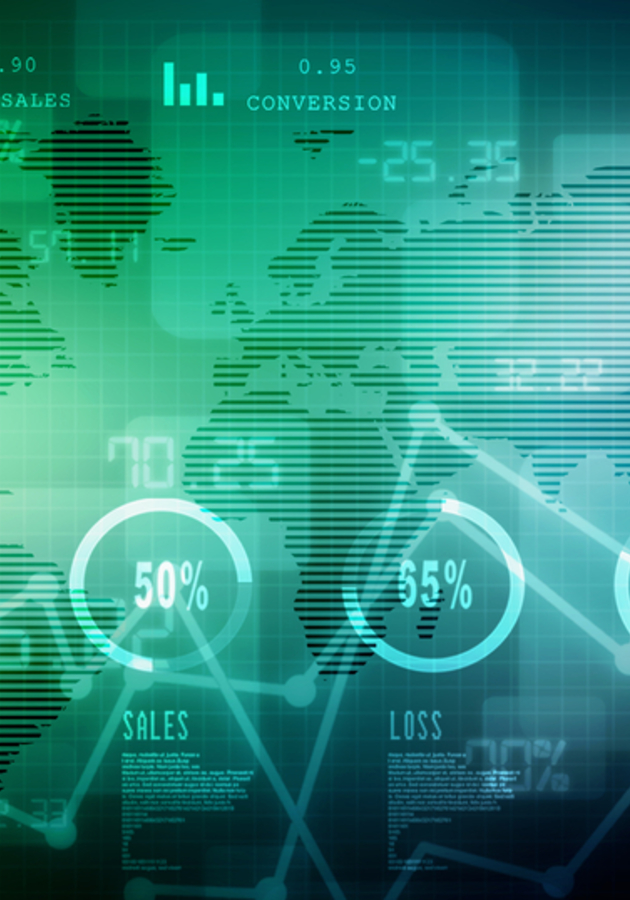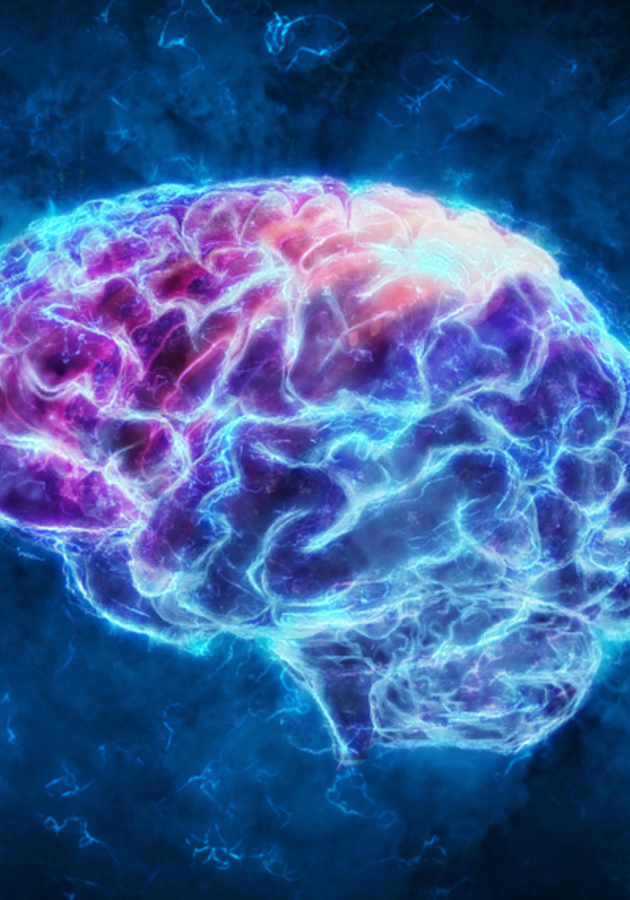“The foundation of political economy and, in general, of every social science, is evidently psychology,” wrote Italian polymath Vilfredo Pareto in 1906. “A day may come when we shall be able to deduce the laws of social science from the principles of psychology.” It took economists some time to take note, but they finally did during the 1970s and 1980s. Two decades into the 21st century, it is not an exaggeration to say that even the most pristine classical economists have recognized the bounds of rationality of economic agents and have accepted the necessity for more accurate – and, strangely, less mathematical – characterizations of human behavior. Until very recently a laughing matter, behavioral economics is now the fastest growing branch of economics, and has already given us a few contemporary classics and no less than five Nobel Prize winners.
Since 2017, Richard Thaler is, more than deservedly, one of them. A giant of modern thought, he has stood at the helm of this revolution in the dismal science from its very beginnings, a story of ups and downs he deems worth telling. That’s what “Misbehaving” is mostly about. In it, Thaler draws from his own experiences to convey a meandering history of the rise of behavioral economics, delicately braiding it with an in-depth overview of all the ways traditional economic models fail to describe real-world human behavior. Part memoir, and three parts vitriolic attack on outmoded Chicago School-styled economists, Thaler’s brilliant book aims to explain what he and his colleagues learned along the way of revolutionizing the field of economics, “so that you can use those insights yourself to improve your understanding of your fellow humans.” So, get ready for a different kind of economic observations: valuable, thought-provoking, and, most importantly, fun!
The faulty premises of traditional economics
Economics is usually considered the most influential and most powerful of the social sciences. This is not only because of its far-reaching impact on public policies, but also because unlike, say, historiography or media studies – and similarly to physics and math – economics has “a unified, core theory from which everything else follows.” The two core premises of economic theory are constrained optimization and equilibrium. In other words, most traditional economists believe that the following two truths are self-evident: 1) of all the goods and services a person can buy, they would usually choose the best ones they can afford, and 2) in competitive markets, prices fluctuate in such a way that supply eventually equals demand.
The problem with these two premises, says Thaler, is that both of them are deeply flawed. They may sound commonsensical, but that’s precisely their problem: humans, simply put, aren’t as logical as economic theory would want them to be. We regularly fail at making the optimal choice when it comes to life-defining decisions such as careers, mortgages, and spouses, and that in itself should have long ago cast doubt on the idea that we tend to choose the best item on the supermarket shelf! More importantly, our decisions are as rooted in our guts and instincts as they are in our brains and rational analyses – if not more. Before writing “The Wealth of Nations,” Adam Smith wrote a book on human passions, but somehow “passion” is not a word you’ll find in many economic textbooks. Yet, we do so many things solely out of passion and nothing else.
As far as traditional economists are concerned, we are all “cold-blooded optimizers;” in reality, however, we are anything but. Humans consistently act in ways that are poles apart from the ones predicted by traditional economic models. If it was any different, after all, there would have never existed things such as bubbles and crashes. Yet, not only do they exist, they happen all the time as well, and sometimes – as, for example, on October 19, 1987 when stock prices fell more than 20% all around the world – they seem to occur “in the absence of any substantive bad news.” Most importantly, even though virtually no economist has ever predicted a financial crisis with any certainty, we keep using the same predictive models in economics. Why?
Enriched views: the case for behavioral economics
According to a famous anecdote, when a student of German philosopher Georg Wilhelm Friedrich Hegel pointed out to him a fact that didn’t fit easily within Hegel’s comprehensive and highly organized system, the great philosopher didn’t waste too much time to ask his student to forget and even renounce the fact. His philosophical system, Hegel explained, was just too compact and too definite to be unsettled by a triviality. Facts, however, are no trivialities, and no model that forsakes them can aspire to be based in reality. Unfortunately, traditional economics is one such model, for it was built on abstract axioms of rational choice, and not on experiential evidence and empirical observations.
Now, when facts threaten to unbalance models, the creators of these models act as Hegel did in the 19th century: they start defending their creations more vigorously than ever before. The same thing happened in economics. When emerging intellectuals such as Thaler, Amos Tversky and Daniel Kahneman began questioning the dominant ideas of Milton Friedman and the Chicago School of Economics during the 1970s and 1980s, they were laughed off for “psychologizing” a rigidly mathematical scientific field. History has, of course, vindicated their challenge manifold.
At its heart lay a rather simple objective with wide-ranging consequences: putting the human back into economics. “It has never been my point,” Thaler writes, “to say that there is something wrong with people. We are all just human beings – Homo sapiens. Rather, the problem is with the model being used by economists, a model that replaces Homo sapiens with a fictional creature called Homo economicus.” This species, Homo economicus or Econ, for short, is not unlike Star Trek’s Mr. Spock, an extraterrestrial being who lives by logic with as little interference from emotion as possible. Homo sapiens, on the other hand, is an emotional, passionate and irrational creature that sometimes does things economic models can’t predict.
Compared to the fictional behavior of Econs, humans do a lot of “misbehaving,” that is to say, they act in ways inconsistent with economic models. Unfortunately, this also means that economic models tend to make a lot of bad predictions about our world, some of which can have serious consequences, for the simple reason that the world isn’t inhabited by Econs, but by humans. “The primary reason for adding humans to economic theories,” explains Thaler, “is to improve the accuracy of the predictions made with those theories. But there is another benefit that comes with including real people in the mix. Behavioral economics is more interesting and more fun than regular economics. It is the un-dismal science.” Allow us to illustrate why.
Percentages, sunk costs and the endowment effect
Early in his teaching career, Thaler gave his students a rather difficult midterm exam that made everybody mad. The principal complaint was that the average score was only 72 points out of a possible 100. Confused by the criticism – since the average didn’t affect the distribution of the grades – Thaler made the total number of points available on the next exam 137 instead of 100. Since this second test was slightly harder than the first one, on average the students got only 70% of the answers right, with the average numerical score being 96 points. However, this time the students were not just happier than before, but genuinely happy. Because they could not divide their scores by 137 easily in their heads, they felt they did better. An Econ would never be happier about a score of 96 out of 137 (70%) than about a score of 72 out of 100, but a human would - nine times out of 10. Because we’re not that rational. And because we’re prone to biases, heuristics and logical fallacies.
Here is a simple example. Imagine you have paid $1,000 to become a member of an indoor tennis club allowing you to play once a week for the duration of six months. Now imagine you develop tennis elbow after the second month. Would you go on playing, so as to not waste the membership fee? Experiments have shown that most humans would. Not because anyone could enjoy playing through pain, but because we are all designed to not let bygones be bygones and to cry over spilt milk. Known to psychologists and economists as the sunk cost fallacy, this concept influences people’s decisions even when they know its inner workings. In other words, once we invest money, effort or time in something, we use our investment as a rationale for continuing the endeavor, regardless of the fact that it might have become futile or counterproductive in the meantime.
At the heart of this behavior lies another irrational aspect of human behavior: our propensity to overvalue objects that we already own, irrespective of their market value. Called the endowment effect, this bias explains why people won’t sell a concert ticket or a sports card for tens of thousands of dollars, despite only buying them for $10 – and despite living in destitute conditions. It also explains why you wouldn’t hire a kid to mow your lawn for $10, even though you would never mow your neighbor’s lawn for even $50. In other words, when we establish ownership over something, we tend to place a greater value on that something, be it money, an object or, simply, our time. From that moment on, we are less interested in gaining something than we are in not losing. As behavioral economists discovered, humans are notoriously loss-averse.
Conditional cooperators and games of fairness
Since, unlike Econs, humans are complex beings, they cannot easily escape the endowment effect or deal with sunk costs – even after they’ve learnt about them. This is not only true for things such as concert tickets or tennis clubs, but also for much bigger things such as wars. For example, as Thaler explains, the United States continued its futile war in Vietnam because the country had invested too much in it to quit without getting something out of it. Nobody likes to lose anything – time, money, resources. That is, unless losing seems somehow fair – or, at least, a part of a bigger, more interesting story.
Consider the Public Goods Game. Ten strangers are given five $1 bills by a researcher, and each participant is then asked to contribute as many dollar bills as they want (if any) to a certain public good, say improved street lighting. The rules of the game state that, after every round, the total contributions are doubled by the researcher and then the money is divided equally among all the players. The rational strategy – the strategy of an Econ – would be to make no contribution, for if you end up being the only one to donate $1, at the end of the round, you will be poorer for 60 cents, and everybody will get incremental 40 cents. But in practice, most people don’t act this selfish and consistently contribute about half their stake to the public good. The only exception, ironically, are graduates in economics, whose contribution rate is usually never above 20%. Put otherwise, not only are economic models wrong, but they may actively contribute to making the world a worse place.
For traditional economic models to work, humans have to be purely selfish – at least when dealing with strangers. “It is not from the benevolence of the butcher, the brewer, or the baker that we expect our dinner,” Adam Smith famously remarked in 1776, “but from their regard to their own self-interest.” But in reality, the large majority of people are “conditional cooperators,” meaning they are willing to cooperate if enough others do. In almost all fairness games, almost all competitors start by giving others the benefit of a doubt and tend to punish free riders even at their own personal cost. Very few of us are free riders by default; however, many may become one if cooperation rates are low. By supposing that cooperation is an anomaly rather than an inherent aspect of human behavior, traditional economists encourage selfishness and implicitly reprogram humans into becoming Econs. They don’t have to. They really don’t have to.
The supposedly nonexistent problem of self-control
For most traditional economists, experiments such as the Public Goods game and biases such as sunk costs or the endowment effect are part of a long, long list of “supposedly irrelevant factors,” or SIFs for short. For Thaler and other behavioral economists, these SIFs actually matter quite a lot, because they demonstrate that people cannot make optimal decisions even in very simple situations, let alone in our increasingly complicated world. Consequently, these SIFs suggest that economists shouldn’t build models that expect humans to act like Econs, but rather study human psychology better to be able to anticipate our various types of “misbehaviors” and devise proper policies to reduce them. Yes, that means that economists should actually guide us into making decisions that benefit us.
It may sound like something taken straight out of a dystopian novel, but it is not – nor would any serious behavioral economist devise it in such a manner. The problem is that there is a big difference between human needs and wants and an even bigger between rational and emotional analyses. Thaler realized this during a dinner he organized for a couple of friends. While the meat was roasting in the oven, he brought out a large bowl of cashew nuts so that people had something to nibble on. Within five minutes, the bowl was half empty and everyone’s appetite was in danger. When Thaler abruptly removed the bowl, everybody thanked him.
Why? For the same reason that people put their alarm clocks in the other room or smokers pay more for cigarettes by purchasing them one pack at a time instead of by the carton. In one word: self-control. In a few more: we are not rational enough to be able to discipline ourselves in a way compatible with our wants and needs. Quite often in life, we do things we’re not supposed to or things we don’t want to, only to regret them afterward. However, traditional economic models are not interested in your disappointments because, to them, self-control is a psychological, and not an economic problem. In fact, self-control lies at the root of many of society’s biggest problems.
Nudges and libertarian paternalism
For traditional economists, there is no difference between a preference and a choice: choices, they often say, reveal preferences, casually adding that people vote with their feet and dollars, and not with their thoughts or ideas. In reality, however, our choices are often incompatible with our real preferences. We want to wake up early or stop nibbling cashew nuts before a meal, but we can’t seem to be able to resist the temptation. To make matters worse, we don’t really feel better afterward – we feel guilty and sad.
That’s where economists should step in. When Thaler removed the bowl of cashew nuts from his dinner table, he actually made things easier for his guests, helping them achieve their own goal: to not spoil their appetite. Just as well, confiscating a gun from a household decreases the risk that one of its members will commit a homicide or a suicide. They say that it is people, and not guns, that kill people, but that is not precisely true. In reality, people who have guns at their immediate disposal kill people – themselves or others – much, much more often than all other people. But that shouldn’t surprise anybody who has ever gone on watching a TV show after realizing the batteries in their remote are dead – which is to say, pretty much everyone.
Now, removing a choice is not something economists are usually interested in: not only it is undemocratic, but it can also become problematic in the long run. Being no exception, back in 2008, Thaler teamed up with legal scholar Cass Sunstein to devise a better way to organize our society and our choice architecture. The two came up with a concept now known as “libertarian paternalism,” according to which governments should make use of behavior economics to make it easier for people to reach good decisions, through indirect suggestions and positive reinforcements, and without explicitly forcing anyone to do anything. In this context, they introduced the now-famous idea of “nudges,” originally described as small features in the environment that attract attention and influence people’s choices in ways that make the choosers better off, as judged by themselves.
Neither enforcement nor legislation, nudging simultaneously respects people’s freedom of choice and guides them in a direction more compatible with their real needs and wants. For example, when Sweden introduced piano stairs – that is, stairs that play notes when one walks on them – 66% more people than normal chose to use them over riding the escalator. An even better example comes from the Netherlands: by merely etching an image of a housefly into the men’s room urinals at the Schiphol Airport, the Dutch managed to reduce spillage on the bathroom floor by a whopping 80%! Though paternalistic, neither of these two nudges restricts choice. You are still free to use the elevator in Stockholm or urinate on the floor in Amsterdam. However, since the better option has been made more attractive by a small feature, you’d at least think twice. And that is sometimes all that it takes.
Final notes
When the Royal Swedish Academy awarded Richard Thaler the Nobel Memorial Prize in Economic Sciences in 2017, it stated that “his contributions have built a bridge between the economic and psychological analyses of individual decision-making” and that “his empirical findings and theoretical insights have been instrumental in creating the new and rapidly expanding field of behavioral economics.”
Indeed, we can thank Thaler and his frequent collaborators Kahneman and Tversky for making behavioral economics a respected branch of the dismal science – if not for inventing it. “Misbehaving” tells the entire story – and it tells it in an engrossing, enjoyable, exciting – and immensely fun way!
12min tip
To quote Thaler: “We don’t have to stop inventing abstract models that describe the behavior of imaginary Econs. We do, however, have to stop assuming that those models are accurate descriptions of human behavior, and stop basing policy decisions on such flawed analyses. And we have to start paying attention to the supposedly irrelevant factors.”





























